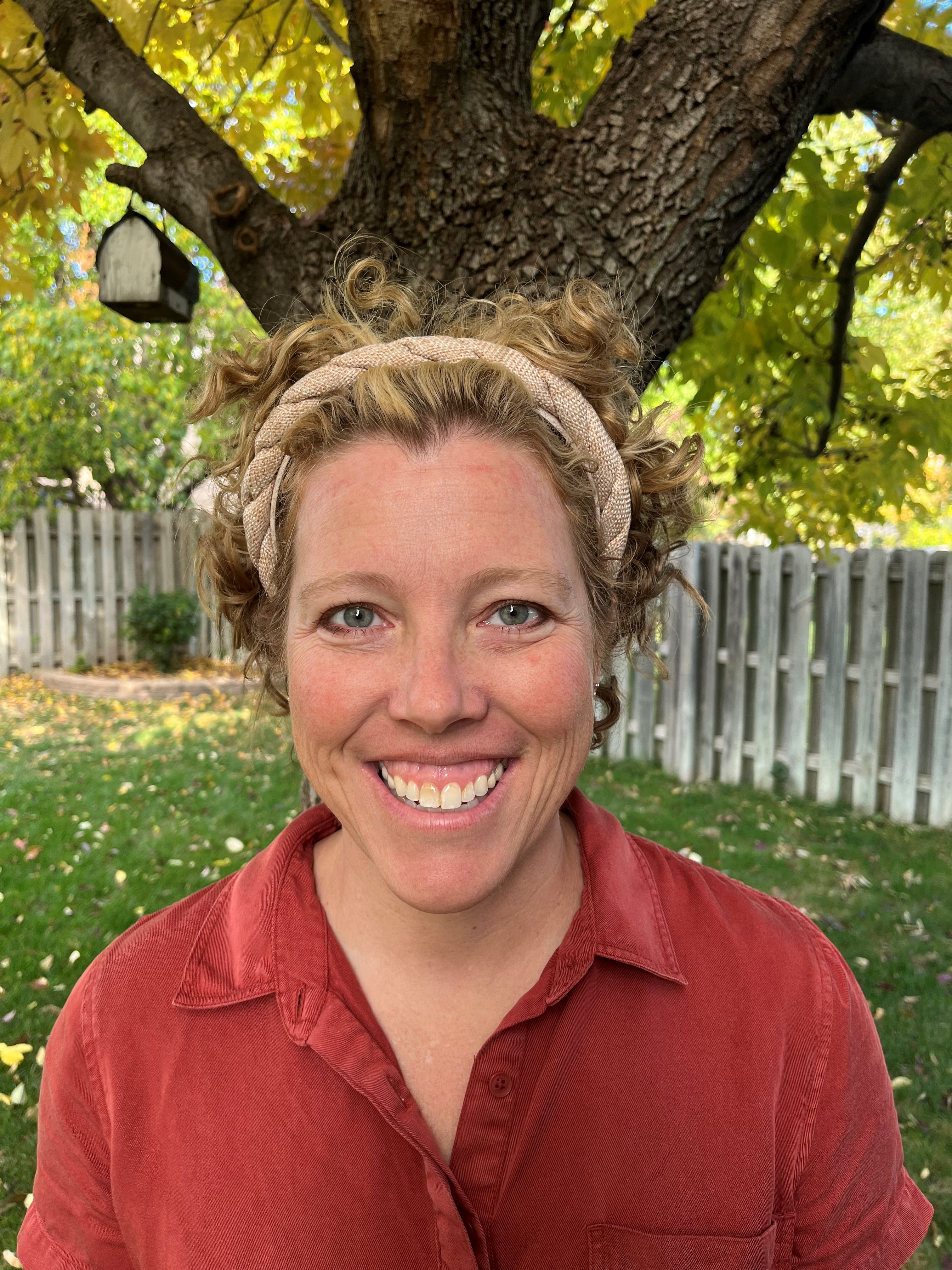
Experiencing productive struggle firsthand in Primarily Math courses gave third-grade teacher Heather Kramer the confidence to implement an inquiry approach in her own classroom.
In Kramer’s room at Rousseau Elementary in Lincoln Public Schools, math is approached from a growth mindset.
“Students get time to explore activities with their background knowledge and work with others to learn alternate strategies,” Kramer said. “My job is to listen and ask questions to clarify and deepen their approach. Rarely do I ever use direct instruction because students are leading the conversation.”
Kramer attended the University of Nebraska–Lincoln, majoring in Elementary Education. Kramer completed Primarily Math in 2012 and went on to earn her master’s degree from UNL in Teaching, Learning and Teacher Education in 2013.
A Wisconsin native who moved to Lincoln during eighth grade, Kramer said she struggled with math, in particular with finding patterns, and sometimes would require extra help from her teachers. When she entered the college of education, Kramer said she was “quite insecure about teaching it to my students.”
As an undergraduate, Kramer was part of the Math Matters cohort, a grant led by Primarily Math founders and Professors Jim Lewis and Ruth Heaton.
“Math was not my strong suit, and I had hoped it would make me a more confident educator of math. It was hard. I was pushed beyond what I was used to and therefore flourished in my understanding of mathematics,” Kramer said. “I want educators and students to feel what I felt: the pride of conquering something hard by repeatedly struggling and re-evaluating the strategies used.”
Research conducted with Primarily Math teachers from 2011 to 2013, a time period in which Kramer participated in the National Science Foundation-funded cohorts, showed that Primarily Math teachers experienced more confidence and increased student-centered beliefs, along with less anxiety and decreased teacher-centered beliefs. During this time, the comparison group scores to the control group remained statistically flat. “In particular, we know that women teachers’ mathematical anxiety is ‘contagious’ for girls, so decreasing teacher mathematical anxiety is a very positive outcome,” said Dr. Wendy Smith, director of the Center for Science, Mathematics and Computer Education and the lead Primarily Math researcher during the NSF grant.
“Not only do I feel more confident as a math teacher, but I am more comfortable giving students the time needed to explore math without feeling like I need to step in and correct their work,” Kramer said. “I focus more on the process of their math, rather than the correct answer. I feel this approach has built their confidence as mathematicians.”
A fascination with how children’s minds work led Kramer to choose teaching as a career.
“I also felt like many of the adults I went to school with didn’t understand me,” Kramer said. “I was quite sensitive and didn’t always feel like I fit in. I was bullied in high school. Teachers watched and did nothing. I wanted to make a difference in how kids felt about themselves and their worth.”
Kramer, who has been teaching for 20 years, has been at Rousseau for the past seven years, in third or fourth grade. She previously taught kindergarten at Roper, where she was a team leader.
During the four years that Kramer was the math liaison for Rousseau, she had the teachers study the book “The Math Pact: Achieving Instructional Coherence Within and Across Grades.” Across the district, liaisons and administrators work together to help educators in their building understand the importance of common language and collaboration among multiple grade levels.
“I enjoy mentoring teachers on the art of productive struggle and inquiry of math,” Kramer added.
Kramer said that not only does Primarily Math improve your teaching of mathematics, but also the teaching experience as a whole.
“My favorite part of Primarily Math was the camaraderie. It is refreshing to work with like-minded people who value the art of inquiry in mathematics,” Kramer said. “I have built relationships with many of the participants and continue to keep in contact with them.”
To join the next cohort of Primarily Math that begins in July 2024, visit https://scimath.unl.edu/primarily-math. Email nebraskamath@unl.edu with any questions.
- Lindsay Augustyn, UNL CSMCE